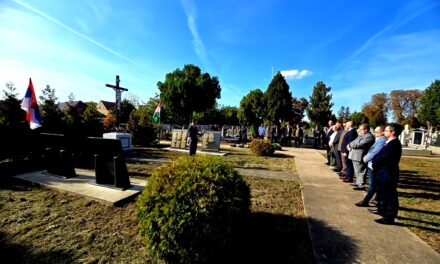The Transylvanian Hungarian Association (EMSZ) stands by the Reformed bishops investigated for reclaiming the Wesselényi College in Zilah, and rejects the government's intention to intimidate, the co-presidents of the party association announced.
In their resolution, István Csomortányi and János Mezei announced that they will stand by the church leaders and reject any intimidation from the authorities, and if necessary, they will take to the streets. As they wrote, all this is being done "to make it clear to Bucharest: we do not give in to attempts at intimidation and we say no to anti-Hungarianism raised as a state policy!".
The co-presidents called it a "classified case of theft" that even three decades after the fall of the communist regime, the Hungarian community in Transylvania and the historical Hungarian churches have to "engage in endless lawsuits" to recover their properties nationalized by the communists.
It was also established that the Romanian justice system uses a double standard in Hungarian cases. For example, he refused to return the Batthyáneum library in Gyulafehérvár to the Roman Catholic Church, annexed the Békás Strait from Hargita County, imprisoned "innocent Székely patriots" for years "in the context of a conceptual trial" . At the same time, the justice system left without consequences the fact that peaceful Hungarian cemetery guards were attacked with sticks and flagpoles in the Úzvölgy military cemetery, that the Hungarian flag was burned in Nagyvárád, or that anti-Hungarian chants are regularly chanted at sporting events.
The Zila prosecutor's office launched an investigation against István Csűry, the bishop of the Királyhágómelléki Reformed Church District (KREK) and Béla Kató, the bishop of the Transylvanian Reformed Church District (EREK), in the case of reclaiming the building of the Wesselényi college in Zila . As part of the "ex officio" investigation, the two church leaders are suspected of document forgery, bribery and misuse of forged documents .
The prosecutor conducting the investigation inquired about a document issued in 1911, which can be found in the archives of the Transylvanian church district. The controversial document is the decree of the Ministry of Culture of the then Hungarian government on how to manage the land registration of church schools, and it clarifies that the schools are church institutions. According to the land registration practice of the time, the owner of the school buildings was not the church itself, but an internal unit of the church.
Source: Erdély.ma
(Photo: Facebook)













